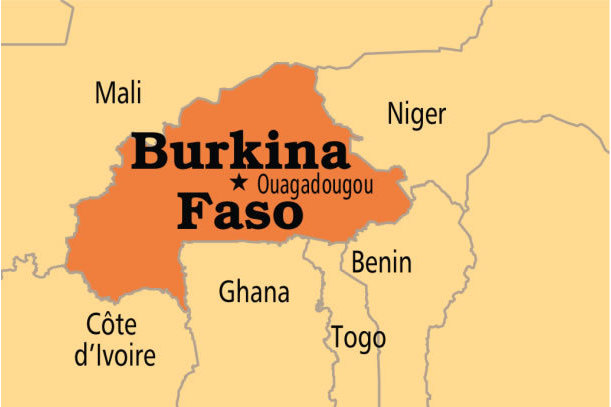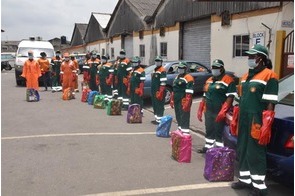Programme on child and maternal malnutrition in Burkina Faso shows positive results

Summary
The programme helped to increase the ownership of productive assets by women and improve their social status.
Findings from a randomized controlled trial in Burkina Faso show that integrating nutrition, health education and women’s empowerment could improve mother’s and children’s health and nutrition. The findings were reported by researchers from the International Food Policy Research Institute (IFPRI).
The study is called the Enhanced-Homestead Food Production (EHFP) programme, developed by Helen Keller International (HKI) over 25 years ago. The programme was designed to combat malnutrition in women and young children. The trial in Burkina Faso established community gardens and provided seeds, tools, and knowledge on good agricultural, health, hygiene and nutrition practices to mothers with young children from 3-12 months old.
According to a statement by IFPRI on Tuesday, about 90 percent of children in Burkina Faso under five are anemic – the highest rate in the world. Wasting (being too thin) among children and underweight among women are also common problems in the country. According to UNICEF, wasting is a strong predictor of mortality among children under five.
“Almost all children in Burkina Faso are anemic and many are also stunted and/or wasted. Too many programmes are unable to provide the substantive, sustainable change that this population so desperately needs,” said Deanna Olney, senior research fellow at IFPRI and one of the authors of the studies.
In two years of the programme, the number of underweight mothers reduced. The programme helped to increase the ownership of productive assets by women; improve their social status, and their role in household decision-making compared to women who were not enrolled in the programme. Their infants also benefited: the prevalence of anemia in infants aged 3-6 months decreased by 15 percentage points. Among children 3-12 months, the prevalence of wasting decreased by 9 percentage points; and diarrhea (which can lead to wasting and death in extreme cases) reduced by up to 16 percentage points.
The results of the trial also demonstrate that mothers and their children can become healthier and better nourished from well-designed programmes like the EHFP.
“HKI is committed to contributing to the evidence base of what program approaches really do make a difference for the lives of the most vulnerable and disadvantaged,” said Tom van Mourik, regional coordinator for Creating Homestead Agriculture for Nutrition and Gender Equity (CHANGE) at Helen Keller International.
IFPRI teamed up with HKI to conduct an independent evaluation of the EHFP programme in Burkina Faso. The programme was funded by the U.S. Agency for International Development (USAID).
Further funding to expand the programme in Burkina Faso has been provided to HKI and IFPRI from Global Affairs Canada. It remains to be seen if additional health and nutrition interventions can increase the EHFP programme’s impact on health and nutrition outcomes.
IFPRI said the study could lead to substantive changes in how countries, organizations, and individuals harness the potential of agricultural programmes to improve people’s nutrition and health.
Related
-
How agritech startups are helping smallholder farmers
Precision farming is being promoted by agritech startups the world over. But in Nigeria, many of the startups in this ...
-
Covid-19 response must include provision of food to the vulnerable
In Vietnam, automatic rice dispensing machines, also known as "rice ATMs" have been used during this Covid-19 outbreak to ...
-
Space technology can aid smart, precision farming – NASRDA
The Director-General of NASRDA said space technology will contribute immensely to research in modern farm practices.








